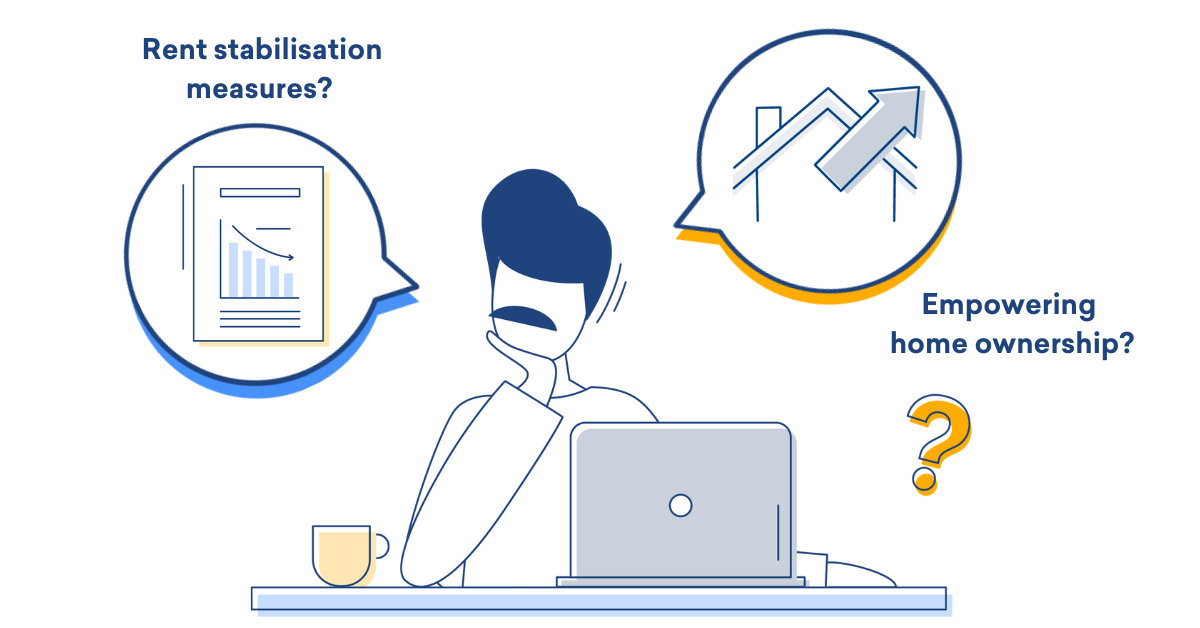On the 4th July, The Labour Party claimed victory with a total of 411 seats, 290 seats more than their nearest competitor, The Conservatives.
Party leader, Sir Keir Starmer, has announced their plans for the lettings industry, pledging a major shake up of the industry with a view to strengthen tenant’s rights, enforce higher landlord standards and help get more first-time buyers on the housing ladder.
Rent ‘stabilisation’ measures
The Renters Reform Bill was first introduced to parliament on the 17th May 2023 before eventually clearing the House of Commons on 24 April 2024 after almost a year. With the legislation currently shelved after failing to become a new law before Parliament dissolved, there was growing uncertainty over when it will be finalised.
Had it become a law, this would have seen a ban on no-fault evictions. Labour's series of pledges in their manifesto included the immediate ban of no-fault evictions; in doing so, tenants will no longer be arbitrarily evicted.
Moreover, recently re-elected mayor of London and member of The Labour Party, Sadiq Khan, has sought out to build at least 6,000 new “rent control homes” in the capital, saying they will see rents capped and linked to key worker incomes. This is, perhaps, a sign of how Labour may focus their efforts on the lettings industry.
Retaining landlords, enforcing higher standards
A Labour-commissioned review of the private rented sector (PRS) provided recommendations based on five key points. One of which is to stop PRS landlords moving to other sectors such as the short-term and holiday let sector, in order to preserve the stock of homes available for long-term let.
However they also plan to increase legislation to enforce higher standards from landlords. They propose a comprehensive, annually updated National Landlords Register (NLR), providing details of their properties and rents to demonstrate compliance with an annually updated PRS Decent Homes Standard.
They added “The NLR should also oblige landlords to submit independent evidence of property and management compliance (gas safe certificates, electrical tests, etc.) and include a responsibility to undertake and submit a surveyor’s report regularly.”
Empowering home ownership
Uswitch revealed that in 2023, the number of rental properties, both private and social, stood at 4.6 million, representing 18.8% of total housing in the UK. This is an 8.8% increase since 2000, underlining the skyrocketing demand in the rental market.
One of Labour’s plans is to build 1.5 million new homes on the ‘grey belt’ over the next 5 years. The grey belt includes neglected areas such as poor quality wastelands and disused car parks that are within the greenbelt. Labour’s core focus is to prioritise first-time buyers.
Uswitch claim the average age of first time buyers is 33.4 and the Government report that 25-34 year olds are the most common age group within the private rented sector, making up a third of total renters. Therefore, this policy can help to ease demand on the rental market, as encouraging this demographic to step on the property ladder should in turn ease overall demand and reduce rent prices.
Did you find this blog interesting? Then why not subscribe to our mailing list and get our blogs delivered straight to your inbox.










